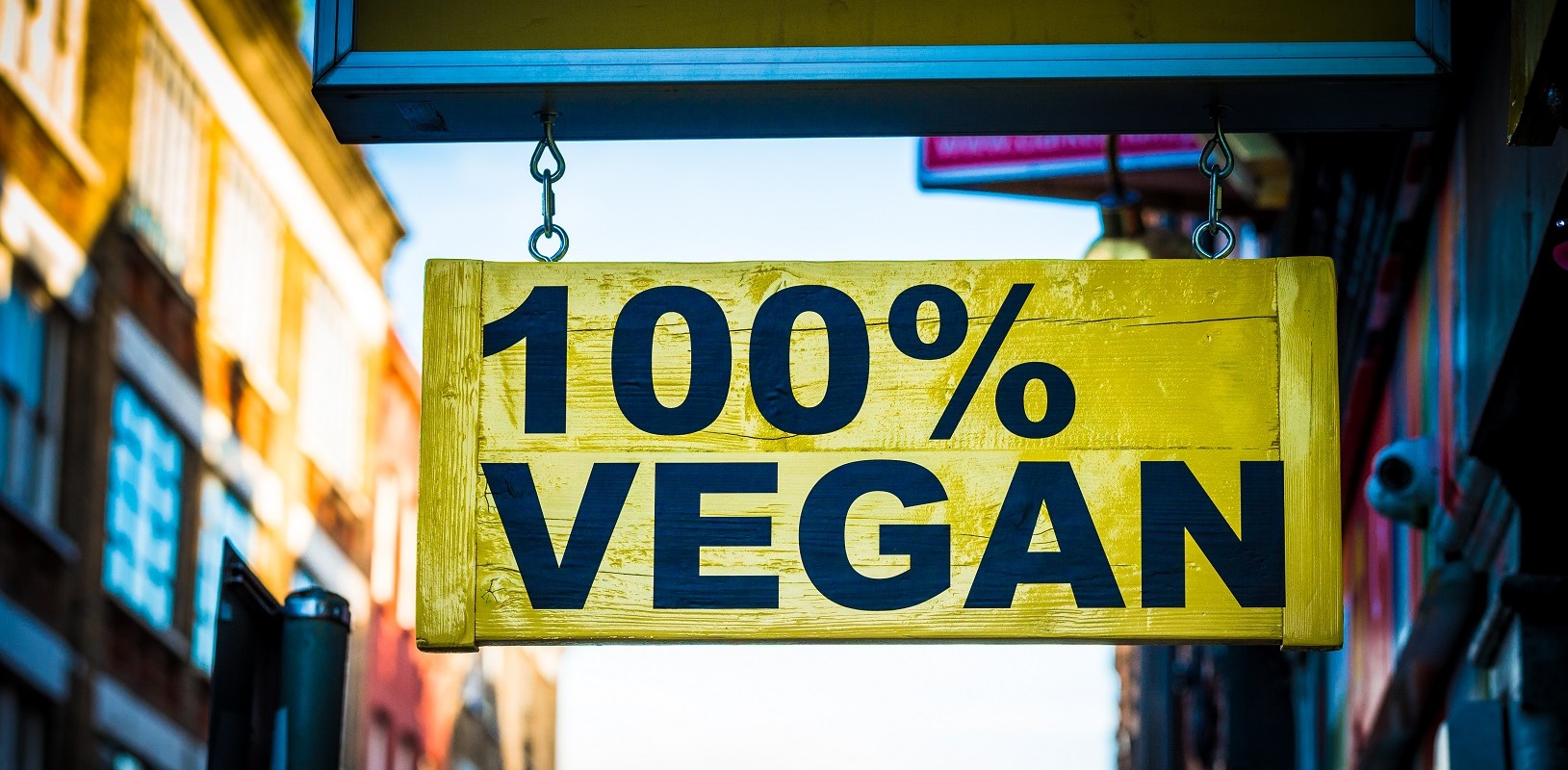The 1st November is World Vegan Day, a day when we generally see a rise in the number of people who identify as vegan. A recent survey suggests that there are now around 3.5 million vegans in the UK, up from approximately 540,000 in 2016, meaning that 7% of our population are now choosing to live their lives free from animal products. This is now a significant number of people and a rising voice for the future. But why do so many people choose to become vegan?
An obvious reason for veganism is the cruel and inhumane conditions for mass-farming animals for foods and other products. However, a large portion of this shift can be attributed to people choosing to benefit the environment. It has been said that your food carbon footprint can be reduced by 73% if you choose to eat a vegan diet. If everyone in the world as to switch to a vegan diet we would free up farmland equivalent to the size of the US, China, Australia and the EU combined and this would have a massive effect for our environment!
A negative for meat-eaters are the associated harmful health impacts. Plant based diets avoid a lot of saturated fats, therefore vegans are less prone to obesity, high blood pressure and high cholesterol. A vegan diet can also reduce the risk of certain cancers that are linked with eating meats.
At Life Leisure, we are invested in people’s health and fitness, so we want to look at how becoming a vegan might affect an individual. With regards to eating pre/post workout, it is commonly accepted that timing is essential. Eating too late following a workout can lead to delayed recovery or eating just before a workout can lead to sickness and cramps. Generally, you should aim to eat 2-3 hours before a session and eat within an hour following completion of exercise. Meals should consist of quality carbohydrate and proteins. By quality I mean not processed (added colourings, flavourings or additives). Simple is best, use fresh ingredients; if you can’t pronounce an ingredient then don’t eat it! Then we come to protein – this is where some confusion lies around eating for exercise in a vegan diet.
Protein is essential in creating and maintaining muscle mass. It is naïve to believe that our protein requirements can only come from animal products. Vegans should easily be able to satisfy their protein requirements from plant-based matter. The list below includes several foods that have good protein content:
• Soy Products (Soy milk and yoghurt)
• Tempeh, tofu and edamame
• Whole grains (rice, oats, wholemeal bread, quinoa, barley)
• Seeds (chia, sunflower, flaw, pumpkin, etc.)
• Nuts (Walnuts, almonds, pistachio, cashews etc.)
• Beans and Lentils (lima beans, kidney beans and black beans)
If you are following a vegan diet, then you need to be conscious of your protein intake and ensure you are getting enough in your diet. As a rough guide on protein intake, it should be approximately 0.75 grams of protein per kilogram of bodyweight per day for adults. So, if you weigh 80kg then you need roughly 60 grams of protein per day. If you are working out regularly and if also looking to build muscle mass, then you will need to consume more protein per day and on a regular basis.
There are some known benefits for regular exercisers going vegan. By sourcing protein from plant-based sources, vegans take on board a whole lot of antioxidants which can aid recovery. The sooner you recover from training; the sooner you can train again! Here is a good case in point – Life Leisure’s Stockport Big 10k has been won by a Vegan Runner for the last 2 years (and in fantastic times too!). Training for distance running can put a tremendous strain on the body. Add this to the training frequency required to hit winning times, then your diet must be on point to prevent the body from breaking down.
So, we know we can get enough protein from plant-based sources, we know that regular high intensity training can be achieved on a vegan diet, we also know that there are benefits to a plant-based diet. Here are some downsides:
• It can be hard to source some meat-free essential micro nutrients, such as vitamin B-12
• Availability of plant proteins isn’t widespread so you need to plan ahead
• Vegan restaurants and menus are not in great supply
However, it is getting easier and easier to overcome these problems because of the rise in popularity of veganism. Supplements have been developed that provide suitable vitamins and plant proteins. More and more vegan restaurants are opening their doors and others are expanding their menus to include a wider range of vegan options.
Now it’s not so unusual to meet a vegan or see a vegan-friendly food option. With the barriers disappearing, is it time for more of us to give veganism a go?

